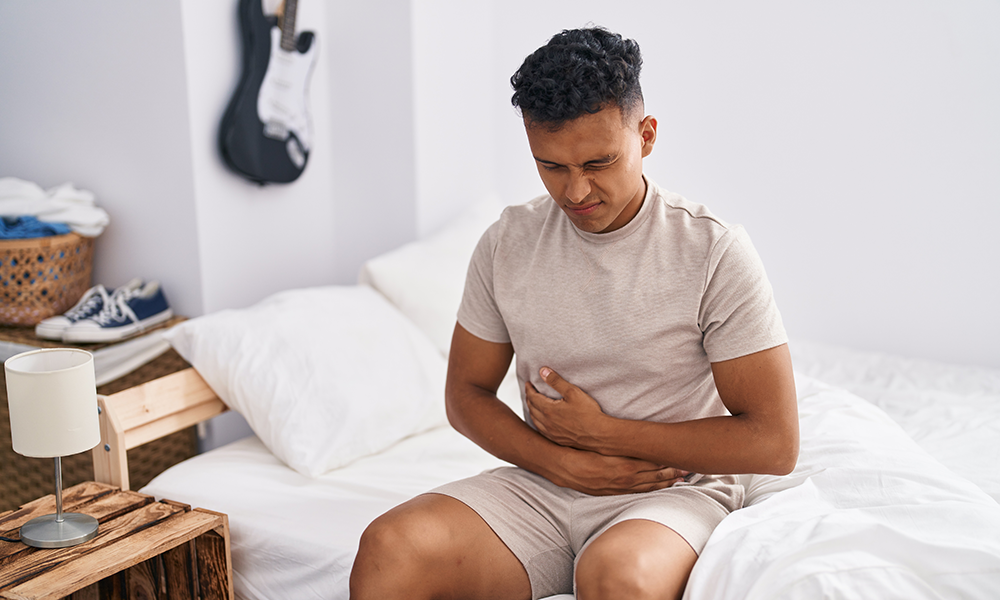Acute gastroenteritis is an inflammation of the stomach and intestines caused by viruses, bacteria, or other microorganisms. It commonly leads to nausea, vomiting, and diarrhoea, which can result in dehydration and loss of electrolytes. treating gastroenteritis naturally can help ease symptoms and support recovery. Most cases resolve within a few days, but proper care can ease symptoms and speed up recovery.
Home Remedies
In most cases, viral gastroenteritis improves without medical treatment. However, several home remedies can help relieve symptoms:
- Stay Hydrated: Drink plenty of fluids to replace what’s lost through vomiting and diarrhoea. Water, clear soups, or diluted fruit juices are ideal.
- Rest Well: Ample rest allows the body to recover more effectively.
- Restore Electrolytes: Consuming electrolyte-rich drinks helps balance essential minerals lost through dehydration.
- Eat Light Foods: When able to eat, stick to bland foods such as rice, toast, or soup to avoid irritating the stomach.
- Pain Relief: Over-the-counter (OTC) medications like acetaminophen can reduce fever and discomfort.
- Ginger: Studies suggest that ginger may help reduce vomiting, particularly in children, and offers additional anti-inflammatory benefits.
Antidiarrheal drugs such as loperamide (Imodium) or anti-nausea medicines like ondansetron (Zofran) may also be used under medical guidance.
When to See a Doctor
While gastroenteritis often improves naturally, medical help is necessary if symptoms worsen. Adults should consult a doctor if they:
- Show signs of severe dehydration (dizziness, minimal urination, or fainting)
- Have persistent vomiting or bloody diarrhoea
- Run a fever above 100.4°F (38°C)
- Recently travelled to areas with poor sanitation
- Have underlying health issues like kidney disease or inflammatory bowel disease
Gastroenteritis in Children
Children are more vulnerable to dehydration. Seek medical attention if a child:
- Produces less urine, becomes unusually irritable, or has cold hands and feet
- Vomits continuously or has green or bloody vomit
- Has diarrhoea for more than a week or vomiting lasting over three days
- Displays symptoms like a high fever, rapid breathing, rash, or stiff neck
Medications
Doctors may prescribe antibiotics for bacterial gastroenteritis, such as metronidazole, azithromycin, or ciprofloxacin. However, antibiotics are ineffective against viral infections and usually unnecessary. Antidiarrheal medications are sometimes used but should be taken cautiously and only under medical advice.
Prevention
Since gastroenteritis spreads easily, maintaining good hygiene is essential. Preventive measures include:
- Frequent handwashing
- Avoiding contaminated food or water
- Steering clear of close contact with infected individuals
- Not sharing towels, utensils, or bedding with someone who is ill
Outlook
Most people recover fully from viral gastroenteritis within a few days. However, the condition can be more severe in older adults and those with weakened immune systems. Bacterial infections typically respond well to timely treatment.
Summary
Gastroenteritis causes vomiting and diarrhoea that usually subside within one to three days. Staying hydrated, resting, and maintaining electrolyte balance are key to recovery. While ginger and OTC medications may help relieve symptoms, severe cases may require medical attention. Preventing infection through good hygiene and food safety remains the most effective strategy.

